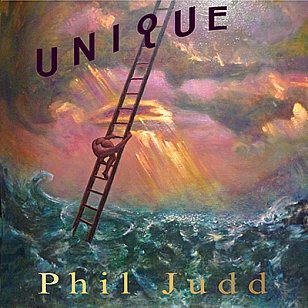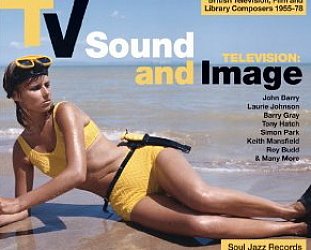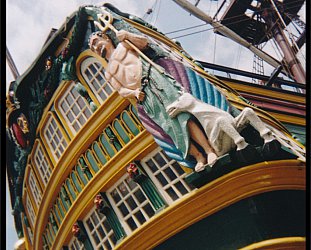Graham Reid | | 3 min read

Few characters, if any, in New Zealand music can claim to have been involved with as many crucial bands as Phil Judd.
He was a founder member, contributing writer and guitarist in Split Enz (he also did the album cover for their debut album Mental Notes), and after his departure he produced the Saturday Night single for proto-punk band Suburban Reptiles, and had a brief stint in the hard-edge Enemy.
Then he – with Buster Stiggs and Bones Hillman – formed the Swingers who enjoyed terrific hits with One Good Reason, Counting the Beat (or as young people know it, the Countdown ad) and It Ain't What You Dance.
That's an impressive first decade, then there were soundtracks for film and television, a solo album, Schnell Fenster and more.
His Enz-era song Play It Strange gave its name to Mike Chunn-helmed student songwriting organisation.
But the brevity of his tenure in bands – even those he founded – illustrates his dislike of playing live, well documented anti-social attitudes and an occasionally troubled private life: bipolar diagnosis, a stroke, marriage breakups, a court appearance relating to stalking three young girls, a jail term for breaking a restraining order in 2010 . . .
A troubled man, and at times his music can be disturbing or bizarre, much like his paintings.
He also doesn't take things too seriously: on the cover of his 2008 album Love is a Moron he posted comments from “reviews” like “Uplifting” – Balloonist News and “Lost for words” - Ventriloquist Times.
So if anyone deserves to entitle their album “unique” - or as he has it, “uniQue” – it is this man whose lyrics are often dense and voluminous and who is very much one of a kind.
And all of the above, awful though much of it, makes any Judd album worth considering.
The opener Free Love finds him back in the days of acid, psychedelic rock and old albums, and it comes with a blast of psychedelic guitar.
Lyrically it might look gloriously nostalgic but Judd’s delivery errs more to the wistful until after that energising flamethrow of six strings and he gets into a litany of band names from the late Sixties: “Blind Faith, Red Crayola, Balloon Farm, the Association, Kaleidoscope and Moby Grape . . .”
It’s not the only song here which seems to be looking back, either on damaged relationships (the dark jangle-pop of Two-Timer, the Lennonsesque ballad Karma Bomb and -- at a stretch -- Into the Zone with former Enzman Miles Golding on violin). Or about family. Papa appears addressed to his father who stuck with him during his more recent troubles: “A man of a different time, a better man you’ll never find”.
It’s hard not hear many of these songs in the context of Judd’s life. On the entrancing Karma Bomb he sings “I never meant you any harm and I’m still beguiled by your charm . . . you never know who’s hiding in the closet, skeleton in the cupboard, who’s the rat on the sinking ship”.
There’s also the psychedelic pop of Sandcastles -- “I’ve been watching sandcastles wash away” -- which again mentions a karma bomb, an image of vengeance served, and his angry, dischordant and brittle Man in the Attic in which he dismisses Santa Claus, God and all the fairytales “invented to allay all our earthly fears”.
The slightly wonky, tempo-shifting Ah-Oh which opens “Just when it all looks rosy and the icing’s on the cake, here comes that clap of thunder with the lightning in it’s wake . . .”
Memory Lane is a pop song about looking back to a better time but concludes – with words once used by bandmate Tim Finn -- “let’s forgive and forget, it’s time to move on . . .”
His swipe at Donald Trump’s ascendancy on the menacingly angry Gutless Wonder (“say goodbye to the gutless wonder”) has been overtaken by events of course.
Musically much of this steers down more familiar paths than his Enz material (which was admittedly many decades ago) but some of the quirkiness of recent albums has also been tailored down . . . aside from the oddball but enjoyable Meanwhile which sounds like a polite Latin ballad with a vocalist who has gone horribly wrong.
And Maa Ya Ha is like a cow-punk band on a reservation in Arizona.
Phil Judd should always be of interest given his track record and willingness to lay open his musical idiosyncracies and aspects of her personality.
And it’s not just anyone who closes an album with a hard rock recipe for creme brulee.
Phil Judd's albums are available from his website here.
Weirdly when I have tried to upload a sample song from uniQue the album has repeatedly crashed my computer. If/when I find a way around this I will be onto it. The album is not available on Spotify or iTunes.





post a comment